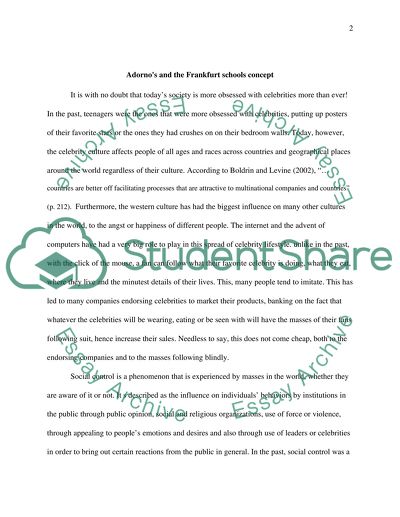Cite this document
(“Discuss Adorno's and the Frankfurt Sschools Concept that Celebrities Essay”, n.d.)
Retrieved from https://studentshare.org/english/1440674-discuss-adorno-s-and-the-frankfurt-schools-concept
Retrieved from https://studentshare.org/english/1440674-discuss-adorno-s-and-the-frankfurt-schools-concept
(Discuss Adorno'S and the Frankfurt Sschools Concept That Celebrities Essay)
https://studentshare.org/english/1440674-discuss-adorno-s-and-the-frankfurt-schools-concept.
https://studentshare.org/english/1440674-discuss-adorno-s-and-the-frankfurt-schools-concept.
“Discuss Adorno'S and the Frankfurt Sschools Concept That Celebrities Essay”, n.d. https://studentshare.org/english/1440674-discuss-adorno-s-and-the-frankfurt-schools-concept.


